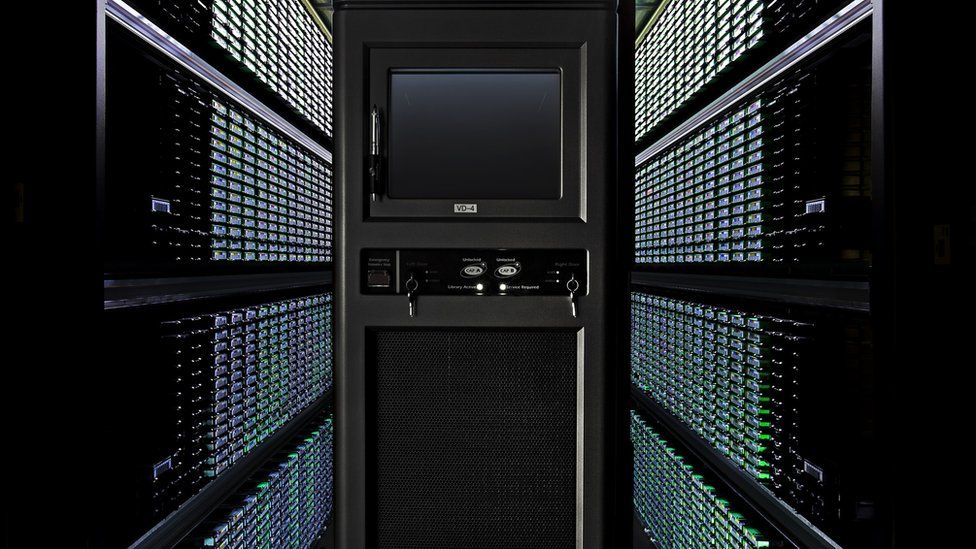Google uses AI to save on electricity from data centres
- Published

Its artificial intelligence division, DeepMind, has cut Google's data centres' energy consumption by 15%, using a machine-learning algorithm.
Data centres run the equipment that processes the data consumed by internet users, and it takes a lot of energy to keep their servers cool.
Some of the newer ones are now being built in colder climates.
But some estimates suggest they are now responsible for 2% of global greenhouse-gas emissions.
"Being able to put a dent in that benefits the world in general," said DeepMind co-founder Mustafa Suleyman.
Fed vast swathes of historical data collected by sensors measuring temperature and power, DeepMind's general purpose algorithm - similar to the one trained to play Atari games - had come up with a real-time, adaptive system that had cut the cost of cooling by 40% and the overall energy consumption by 15%, Mr Suleyman said.
"This will have a significant environmental impact," he said.
The system will be rolled out across all of Google's data centres by the end of the year.
And, in six weeks, DeepMind will share the details of the system in a White Paper.
"We are already talking to non-Google partners about using the same algorithm," Mr Suleyman said, adding it could work equally well in large manufacturing facilities and even national energy grids.
In its 2015 green energy report, campaign group Greenpeace praised Apple, Google and Facebook for their commitments to the use of 100% renewable energy in their data centres.
- Published2 February 2016
- Published5 July 2016